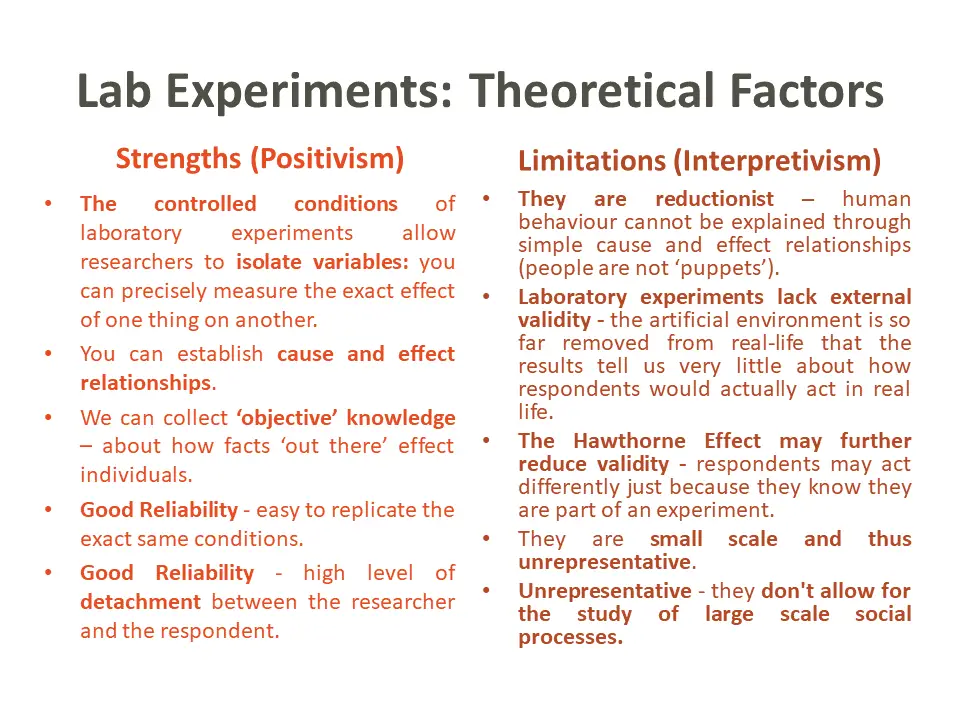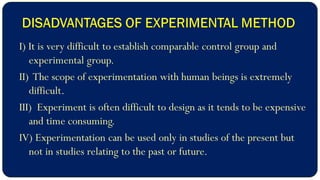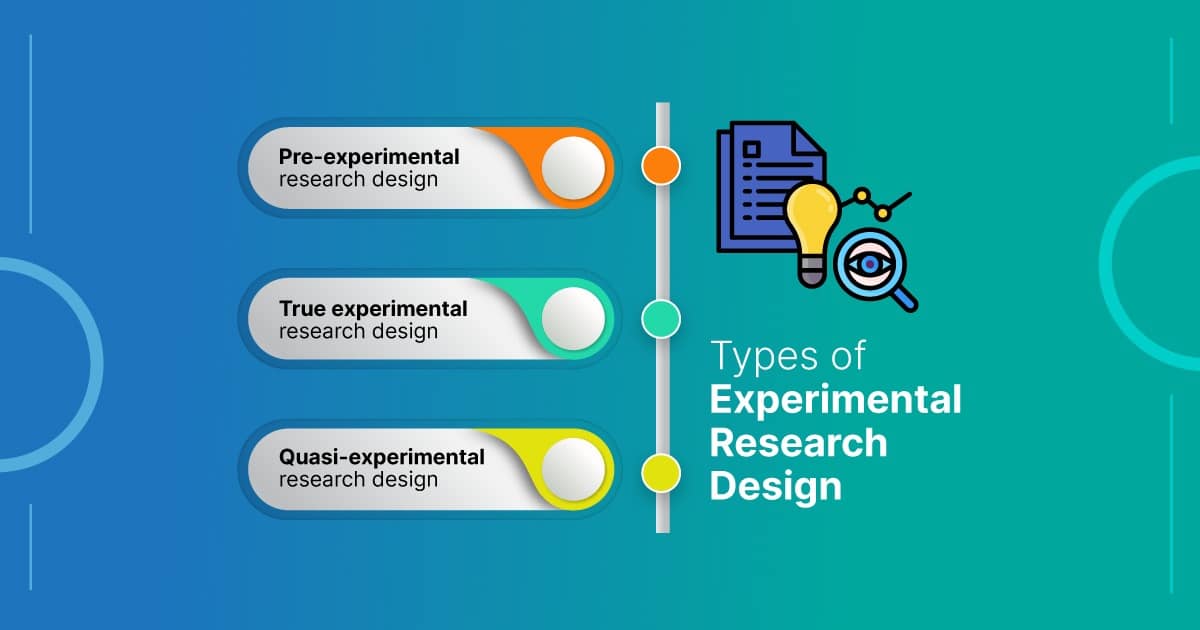Advantages and Disadvantages of Experimental Research
Researchers investigated whether differences exist between the sexes in the risk of ischaemic stroke in patients with atrial fibrillation1 A nationwide retrospective cohort study design was used. A quasi-experiment is an empirical interventional study used to estimate the causal impact of an intervention on target population without random assignmentQuasi-experimental research shares similarities with the traditional experimental design or randomized controlled trial but it specifically lacks the element of random assignment to treatment or control.

Laboratory Experiments In Sociology Revisesociology
Experimental research is usually utilized in the medical and pharmaceutical industries to assess the effects of various treatments and drugs.

. The advantages and disadvantages of stem cell research go beyond the ethics of this field. Data were taken from the Swedish national discharge register. There are many advantages and disadvantages to using secondary data for research purposes.
This is a major advantage because it. Although the proven benefits of stem cell research are somewhat limited according to current science the future potential of these treatments continues to inspire hope for many. The performance of the two groups can then be compared after data is collected to determine if there was a difference in performance of the groups after treatment.
Quantitative research is concerned with facts verifiable information. It protects the identity of the information provider. Research in the area of carcinogen risks and genetically modified foods is controversial because of inconsistencies in reporting and experimental design.
By taking these key points into account it will become. Quasi-experimental research offers the benefit of comparison between groups. Researchers do not need to be present at a specific location or facility to utilize the case study method.
List of Disadvantages of Experimental Research 1. Moreover secondary data are usually much cheaper than primary data and very often is freely provided. Definition Advantages.
Definition Advantages Limitations 536 Go to Qualitative Research Methods and Design Ch 7. Its also used in other fields like chemistry biology physics engineering electronics agriculture social science and even economics. Grounded Theory Design.
As the processes to develop adult stem cells into programmable cells the ethical questions may. Even interviews can. Observe behavior as it organically and spontaneously unfolds in a natural environment.
Even certain experimental tasks such as a memory test can be part of this research process. The experimental group is exposed to the treatment and the control group receives no treatment. The advantages and disadvantages of experimental research show that it is a useful system to use but it must be tightly controlled in order to be beneficial.
To read about the disadvantages of. Observational research sometimes called field research is a form of non-experimental research designed to watch ie. It can be done remotely.
The research approach keeps the personal information anonymous. Purpose The purpose of this paper is first to discuss the theoretical assumptions qualities problems and myopia of the dominating quantitative and qualitative approaches. Participants were 100 802 patients with a first diagnosis of atrial fibrillation between 1 July 2005 and 31.
One of the most important advantages is the fact that a research can be built on previous research using required experience and knowledge. Research can be obtained over the phone through email and other forms of remote communication. This kind of research activity is very helpful for producing data points when looking.
It produces results that can be replicated but it can also be easily influenced by internal or external influences that may alter the outcomes being achieved. It only focuses on collection of data and people with this knowledge of identity preservation give honest opinions. An intuitive approach is to thoroughly evaluate the advantages and disadvantages of primary and secondary research before selecting the most suitable method for your research.
In addition to this. 5 Advantages of Quantitative Research. Experimental research and quasi-experimental design are similar with control groups but quasi-experimental design lacks key randomization and chooses control groups differently.
This article presents the key advantages of secondary research so you can select the most appropriate research approach for your academic study. Advantages and disadvantages of quasi-experimental design relate to the randomization research safeguard of the design. It found that rats who ate genetically modified foods almost exclusively had a much higher risk.
When critically appraising the combination of ethnography and autoethnography researchers must evaluate paradigmatic philosophies and methods of inquiry for commensurability and delineate the advantages and disadvantages of combining methods as they relate to each paradigm. Quantitative research is primarily designed to capture numerical data - often for the purpose of studying a fact or phenomenon in their population. Learn about observational research as well as its advantages and disadvantages to determine if it would be a good idea for your business.
Advantages and Disadvantages of a rigid constitution iv. The authors goal in this article is to demarcate the. It can lead to.
One of the most discussed research papers has been published twice but has also been retracted at least once.

Laboratory Experiments In Sociology Revisesociology

Experimental Research Design Meaning Characteristics And Classific


Comments
Post a Comment